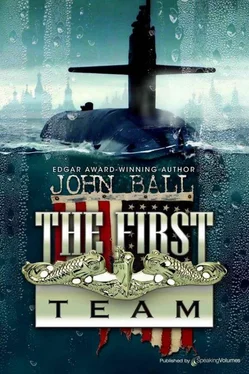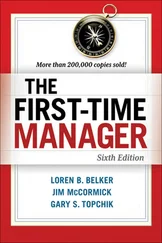Джон Болл - The First Team
Здесь есть возможность читать онлайн «Джон Болл - The First Team» весь текст электронной книги совершенно бесплатно (целиком полную версию без сокращений). В некоторых случаях можно слушать аудио, скачать через торрент в формате fb2 и присутствует краткое содержание. Год выпуска: 2013, Жанр: Триллер, на английском языке. Описание произведения, (предисловие) а так же отзывы посетителей доступны на портале библиотеки ЛибКат.
- Название:The First Team
- Автор:
- Жанр:
- Год:2013
- ISBN:нет данных
- Рейтинг книги:5 / 5. Голосов: 1
-
Избранное:Добавить в избранное
- Отзывы:
-
Ваша оценка:
- 100
- 1
- 2
- 3
- 4
- 5
The First Team: краткое содержание, описание и аннотация
Предлагаем к чтению аннотацию, описание, краткое содержание или предисловие (зависит от того, что написал сам автор книги «The First Team»). Если вы не нашли необходимую информацию о книге — напишите в комментариях, мы постараемся отыскать её.
Student protesters are being slaughtered in the Midwest.
The Jewish pogroms have begun.
You are now living in Soviet — occupied America!
One nuclear submarine and a handful of determined patriots against the combined might of Russia and Soviet-occupied America… The Most Explosive and Gripping “What If” Novel of Our Time!
First published January 1971
The First Team — читать онлайн бесплатно полную книгу (весь текст) целиком
Ниже представлен текст книги, разбитый по страницам. Система сохранения места последней прочитанной страницы, позволяет с удобством читать онлайн бесплатно книгу «The First Team», без необходимости каждый раз заново искать на чём Вы остановились. Поставьте закладку, и сможете в любой момент перейти на страницу, на которой закончили чтение.
Интервал:
Закладка:
“That is impossible,” Barlov reported. “The rules on White House security are rigid and no exceptions are permitted for any reason whatsoever. We will take the prisoner; the colonel will be notified at once.”
The major’s rank insured his victory in the small contest; he summoned three of his men and watched approvingly as they took over with convincing authority. “When the colonel is through with him you will be notified,” Barlov said. “We will await his pleasure.” He gestured that the prisoner was to be taken away.
Outside, the leader of the demonstration knew that he and his people were taking a considerable chance. Protests against the occupying authorities were not allowed; his group had been summoned because a diversion was urgently needed and one had to be put on even at great risk. He did not know the purpose; the instructions he had been given and had passed on to his people had been explicit: their conduct was to be nonviolent and peaceful, giving the enemy the minumum excuse to arrest them. In all probability, he had been told, he and his people would be ordered to break up and clear out, but if there were no conspicuous leaders, it could possibly end there. No resistance was to be offered.
Only one thing had not been foreseen. His full group had been on the job for almost fifteen minutes, but it was still unaccountably growing. At least fifty people in the line of march were not known to him and more were joining them every minute. The placard he held himself read: we petition equal rights for jews.It was deliberately mild and in a cause that was centuries old, but it had not been conceived of as being a popular rallying point. Perhaps it was, or perhaps it was simply a case of frustrated Americans seeing a cause and wanting desperately to be part of it; but whatever the motivation, recruits were arriving in a steady stream.
By that alchemy through which people know what is going on without possessing any visible sources of information, more and more came to march silently up and down the sidewalk on Pennsylvania Avenue until their number was more than three times what had been planned.
“Let me carry the card for a while,” someone said to the leader and took the handle away from him.
“It could be dangerous,” the organizer warned.
The other man became confidential. “I don’t think so. You know about the submarine. I don’t care how much power they’ve got, they can’t take what she can dish out and you know it.”
The man in charge of the demonstration understood — Americans were finding heart and they wanted to be part of the resistance too. He only hoped, fervently, that in their eagerness they wouldn’t push things completely out of hand.
When the coded knock came on the door of the Oval Office, Rostovitch barked, “In!” and looked up for a moment. The sound had told him who it was and that his business was more than casual. “Well?” he demanded.
“Another of the underground agents has been caught,” Barlov reported. “Your orders were that all such matters were to be reported to you personally at once.”
“Correct,” Rostovitch chopped. “A man?”
“Yes.”
“Where do you have him?”
“Directly outside, in case you wish to see him. Your people delivered him to us for that purpose.”
“Good. What is that commotion going on outside?”
“A meaningless demonstration; we will take care of it. Please do not trouble yourself about it.”
Rostovitch put one hand over a telephone. “You require help?” he asked.
Barlov quickly shook his head. “We will handle it; that is our job.” His voice was unexpectedly hard; he wanted it clearly understood that he knew his business.
That pleased Rostovitch. With the next thought his eyes brightened; a captured enemy agent could be made to supply information and the time for that was never better. With a gesture of his left arm he indicated that the man was to be brought in.
Three of Barlov’s men were controlling him; they held him, one on each side, while a third kept watch with a drawn pistol. They almost literally threw the prisoner into a chair, then the man with the gun took up a steady watch directly behind him. It was efficient and ruthless, as it was meant to be.
“What’s your name?” Rostovitch demanded.
He was mildly surprised when the man answered him quite calmly, “Frank Jordan.”
“You are a spy, an underground agent.”
“I’m a cabdriver.”
Rostovitch half rose out of his chair and shot out words like bullets. “You are a spy!” Then, deliberately, he relaxed and let contempt come into his voice. “And a nigger to boot.”
“Don’t call me a nigger,” Frank said.
Rostovitch, with the calculated insult, had found the first soft spot. “I say you’re a nigger!” he hurled at the man before him.
To the colonel’s real surprise Frank kept his composure. “And I say that you’re a goddamned jerk.”
Rostovitch jumped to his feet. The man standing behind the prisoner raised his weapon to strike, but Rostovitch waved him down; he was not ready to have this man killed — not just yet. First, the information.
“And,” Frank added, “you’re a frigging coward to boot.”
Rostovitch walked slowly around to the front of the desk and then leaned on it with his hands behind him. He waited a moment, then spoke with deceptive calmness. “You do not know who I am.” “You’re Zalinsky,” Frank said.
Rostovitch was amused. “Zalinsky a coward, maybe yes; he is very good at making ladies’ sweaters.” Then he hardened abruptly. “But I am not Zalinsky.”
“You’re still yellow,” Frank taunted him. “When you talk to an unarmed man sitting in a chair, you still gotta have another guy backing you up with a gun. That’s because you took one good look at me and got scared that maybe I could beat the shit out of you.” Barlov interrupted at that point. In a completely factual voice he said. “Shall I have this prisoner taken outside and shot?”
Rostovitch’s eyes narrowed, then he shook his head as he studied the man before him. A sudden new idea was shaping itself within his mind: it was born of colossal pride and the accumulated frustrations that he had had to accept ever since the blind, stupid fools in San Francisco had let the submarine get away. Here before him was a momentary way to redeem all that, and to mend the partially shattered fragments of his fearsome reputation.
At that precise moment, as though he had been reading his thoughts, Major Barlov ventured to ask another question. “Excuse me,” he said in the language he knew that Frank could not understand, “how many of my men do you require for your personal safety?”
Rostovitch glanced at him. “Explain,” he said.
Barlov remained calm. “I am about to dispatch some more men to deal with the disturbance outside. But I cannot leave you alone with this prisoner; you must be protected at all costs.”
Although it seemed obviously unintentional, that was another insult, another prod at the colonel’s wounded pride. “Major,” he said, “more than fifty men have tried, from time to time, to lay their hands on me. Are you aware of the outcome?”
“I should not care to try it,” Barlov replied.
That was better.
The colonel held out his hands to be inspected. They were like the ends of twin battering rams, scarred, disfigured, and lethal. “I require no protection,” he said. He did not add that he carried weapons concealed on his person, a habit he had not broken for years.
“Very well,” Barlov replied, “I will send my men to take care of the incident outside, they are needed there. But I cannot leave you alone with this man; I will remain myself.”
Читать дальшеИнтервал:
Закладка:
Похожие книги на «The First Team»
Представляем Вашему вниманию похожие книги на «The First Team» списком для выбора. Мы отобрали схожую по названию и смыслу литературу в надежде предоставить читателям больше вариантов отыскать новые, интересные, ещё непрочитанные произведения.
Обсуждение, отзывы о книге «The First Team» и просто собственные мнения читателей. Оставьте ваши комментарии, напишите, что Вы думаете о произведении, его смысле или главных героях. Укажите что конкретно понравилось, а что нет, и почему Вы так считаете.












